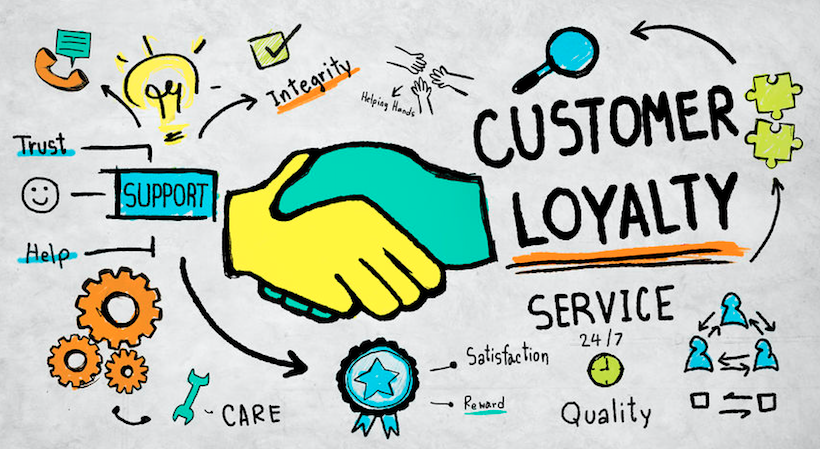If you want to disrupt your industry, you need to adopt a mentality that distinguishes you from other leaders. When everyone else is saying no, you should always say yes. “Yes” seems like an innocuous word, but it’s one that many entrepreneurs and CEOs are so reluctant to say. “Yes” is a verbal agreement; one that you make either to yourself, another person, or an entire group of people.
People love hearing “yes” because it confirms that their request was heard and will eventually be validated; for this same reason, others are hesitant to quickly respond with affirmation. Saying “yes” is making a commitment to uphold your end of an agreement. And when you already feel stretched thin making sure everything that needs to get done in a day does, “yes” can begin to feel more like a ball and chain than a financial payoff.
When you’re already juggling multiple projects and feel like you’ve pushed yourself past your capacity, “no” can be a tempting response to ward off additional work. This mentality is what distinguishes CEOs from one another. An average CEO uses no as a defense mechanism to protect their time so that they can prioritize other pressing issues. A smart CEO implements “yes” as part of their professional philosophy to elicit unique opportunities for their startup’s growth.
This is exactly the type of risk-taking attitude engrained in the minds of disruptive entrepreneurs. Entrepreneurs who challenge themselves to say yes to every opportunity—not just what is in their scope—leverage themselves above their competition.
Richard Branson writes that opportunity favors the bold, and I agree, because I’ve lived it. As CEO of a national logistics company, I have cultivated a “can-do” culture where “no” doesn’t exist in our company’s vernacular.
Here’s why:
Yes changes the way you think
There are three main reasons why people say no: they don’t believe they are capable of delivering on their promise, they aren’t benefiting from the request, or they simply don’t want to be bothered. But ambivalence, selfishness and idleness are destructive to a growing business.
When these traits dictate a CEO’s decisions, it flips positive thinking on its head and fosters an environment where fear, negativity and dormancy prevail. A smart CEO knows that skepticism breeds poor decisions that can be detrimental to business—or, even worse, can often result in no decision at all. That isn’t to say “yes” will always make your job easier, but it is a catalyst to success.
Related: Moz Founder and Former CEO Rand Fishkin Shares Startup Cheat Code
Yes makes you a resilient leader
Hardships and failure are an inevitable part of entrepreneurship; you will make mistakes as you work out the kinks of growing your business. A smart CEO wouldn’t surrender to these extenuating circumstances because failure is an opportunity to learn, and these teachable moments are what will shape your professional philosophy.
It’s important to embrace “yes” after a setback, but it shouldn’t stop there. Even during your best quarter, “yes” pushes you to pursue new opportunities and set more intensive goals for the company. In my experience, challenging yourself when you are the most comfortable is the only way to set yourself apart from your competition. It’s easier to outperform yourself in a good place, rather than when you’re overcoming a rough patch.
Yes promotes creative thinking
Saying yes to new opportunities is risky because there will occasionally be requests that you aren’t sure if you can fulfill, but that is exactly the mentality an entrepreneur needs if they want to disrupt their industry.
If an amazing opportunity comes along, say yes, then figure out how you’re going to make it work later. If you only say yes to what you know, you aren’t learning anything; in entrepreneurship, that mental stagnation is a crux to creative thinking.
Our clients never hear “no.” The customer always comes first, and if that means trying to resolve a request we have never tackled before, our team will work relentlessly until we are able to provide them with a solution. This is not a common practice across the supply chain industry, which is even more of a reason why “yes” has become a driving force in our company. Prioritizing client relationships fosters trust, which generates unwavering brand loyalty.
Sign Up: Receive the StartupNation newsletter!
Yes builds stronger teams
One of the biggest mistakes a company can make is hiring the wrong employees, but every now and then, one will slip through. It may seem harsh, but it’s important to rectify the situation before the rest of your team and your company start to suffer. It takes most companies four to six months before they fire an employee, but a lot of damage can be done in that time.
The services my company provides are very complex, so it’s important that we recruit the right talent. Instead of only looking for candidates who look good on paper, I have found more success in hiring people who embody the same “can-do” attitude we do. Implementing this mentality internally has encouraged better communication and created a safe environment where my employees feel comfortable expressing their ideas.
“Yes” may seem like such a simple word, but it’s much more than that: it’s transformative and inexhaustible. A smart CEO always says yes because they know they are taking a risk, but it’s a risk that is well worth the reward. “Yes” is a door to limitless opportunities, and for CEOs who adopt this mentality, there are no boundaries.






